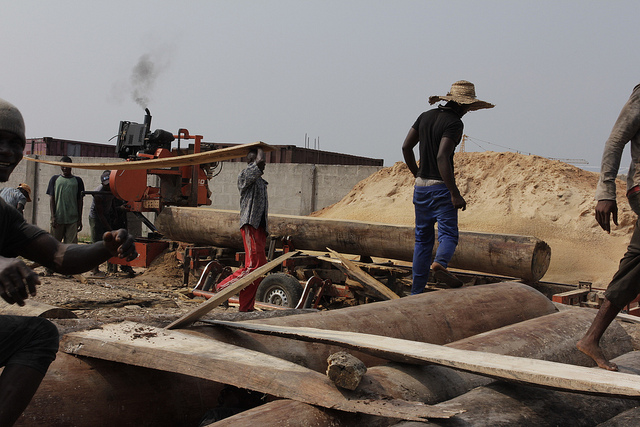Timber Markets

Share
Related Links
Moving Towards Sustainable Timber Markets in the Forest-Rich Congo Basin
Keywords
Congo Basin Timber
CHALLENGE
Population growth and economic development are contributing to rising demand for wood and wood
products in Africa, offering new opportunities for local producers to tap domestic markets, and also with profound implications for the forests of the Congo Basin.
APPROACH
Much work has been carried out on the informal and formal logging sector in the Congo Basin region; this study focuses on wood transformation and examining local demand for processed wood products. This research aims to build on prior knowledge to better understand the solutions needed to overcome barriers to expanding the market for legal (and sustainable) timber and processed wood products used in the domestic furniture and construction markets in Cameroon and DRC. Through data collection and analysis, new knowledge was developed regarding the current and future capacities of timber companies to provide wood for public buildings, housing and furniture for the domestic market. In addition, the analysis looks at how wood is currently sourced, and, if not sourced domestically, why. This will help gauge the potential to grow the productive use of wood in these countries. To this end, options for policies and targeted investments to increase the proportion of domestic, locally sourced wood have been identified.
RESULTS
The final report Congo Basin Timber: Case studies of urban wood products markets in the Democratic Republic of Congo and Cameroon was completed in June 2016. This work undertook supply and demand-side analysis for wood products. Local factors which can be capitalized on and considered opportunities include population and GDP growth, urbanization, a growing middle class, and increasing domestic demand for timber. In the short-to-medium term, development of the timber industry can be furthered through a range of action, including: supporting training and tools for better quality products; creating cooperatives to federate artisanal operators; promoting local wood products and innovative craftsmanship; sponsoring the use of local and legally-sourced wood for tourism infrastructure. In the medium-to-long term, the report recommends interventions such as creating structural paneling factories; providing a wide range in product prices; regulating taxes to favor local products; and making “local and legal” wood a national cause.
For stories and updates on related activities, follow us on Twitter and Facebook, or subscribe to our mailing list for regular updates
For stories and updates on related activities, follow us on twitter and facebook , or subscribe to our mailing list for regular updates.
Last Updated : 06-15-2024








